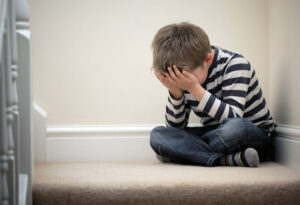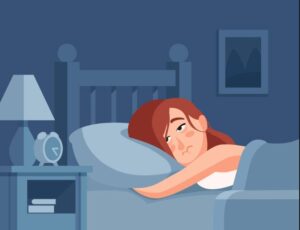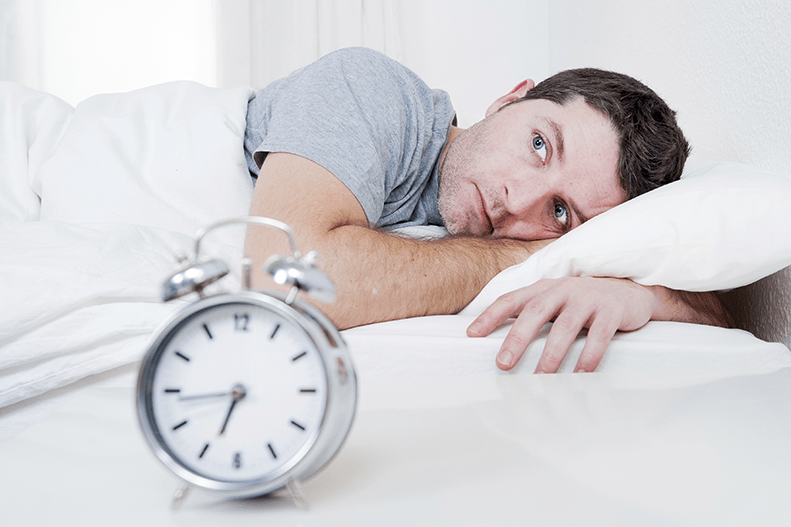When I was a child, I would go to bed at night with the expectation that I would sleep soundly all night. The reality was that I would lie in bed awake for hours before finally falling asleep, only to wake up in the morning feeling exhausted after getting very little restful sleep. This went on for years until eventually, my doctor diagnosed me with childhood insomnia.
Contents
- 1 Understanding Childhood Insomnia
- 1.1 Forms of Childhood Insomnia
- 1.2 Symptoms Of Childhood Insomnia
- 1.3 Causes of Childhood Insomnia
- 1.4 Childhood Insomnia And Child Growth
- 1.5 Diagnosis Of Childhood Insomnia
- 1.6 Treatment Options For Childhood Insomnia
- 1.7 Home Remedies
- 1.8 Helping Your Child With Childhood Insomnia
- 1.9 Facts And Myths About Childhood Insomnia
- 2 Conclusion
Understanding Childhood Insomnia

Childhood insomnia is a sleeping disorder that affects children between the ages of two and twelve years old. It can be difficult to treat insomnia in children because their sleep patterns change as they get older. This makes it hard for their body clock to adjust over time. This means that even when you think your child has gotten better at falling asleep or staying asleep, they still may be suffering from this disorder.
Forms of Childhood Insomnia
There are three main forms of childhood insomnia: difficulty falling asleep, difficulty staying asleep, and early morning awakening. When a child has a form of autism, it is difficult to know what type, and the parents need to know how to help their child.
Difficulty Falling Asleep
When the child has difficulty falling asleep, it is sometimes related to their anxiety about going to bed. They are afraid of monsters or other things in the room that might hurt them when they are sleeping. Parents should figure out what to do, and then tell their children how to do it. Then everyone will get sleep.
Sometimes a child might have difficulty falling asleep because of pain. This could be from an injury or another health condition. If the child isn’t sleeping through the night, they need to talk with their doctor. The doctor can help them sleep.
Difficulty Staying Asleep
The most common sleep disorder in childhood is difficulty staying asleep. This means that a child has trouble falling asleep and/or waking up during the night and has problems getting enough restful sleep. Up to one-third of children experience difficulty sleeping at some point, making it one of the most commonly reported childhood health concerns.
There are many reasons why a child might have difficulty sleeping. Sometimes, it’s simply due to the fact that children’s bodies are still growing and developing. Kids might be going through a lot of changes. They might feel sick or have a nightmare, and that can make it hard to sleep. Other times, difficulty sleeping can be an indication of a more serious sleep disorder.
Children often have trouble sleeping because they are afraid to go to bed. If their room is dark and they don’t know it, then they can’t sleep. Some people may be afraid of monsters in the closet or getting kidnapped by the boogeyman. Sometimes, children experience anxiety or stress that can cause them to have trouble sleeping.
Many children also get into the habit of watching TV or playing on their electronic devices right before they go to bed because our society has made it so easy for kids (and adults) to be constantly entertained by screens. This is not good for sleep at all! Having light shining in your eyes right before you go to sleep can keep your brain active, making it harder for your body to fall asleep.
Early Morning Awakening
The final form of childhood insomnia is early morning awakening. This means the child wakes up too early in the morning and can’t go back to sleep, so they are tired during the day.
This often happens because children have an earlier bedtime than adults do, at least on average. Their bodies naturally take longer to fall asleep (the average here is about 50 minutes). If your body does not have enough sleep, it is likely that you will get tired during the day.
This can also happen due to other causes like anxiety or stress. When a child is anxious or stressed, their body produces more of the hormone cortisol, which can interfere with sleep.
Symptoms Of Childhood Insomnia

- Awakening in the middle of the night: Half of all children with insomnia awaken several times during the night and have trouble falling back to sleep.
- Difficulty waking in the morning: Children with chronic insomnia often wake up very tired which makes it difficult for them to stay awake at school. This can lead to excessive daytime sleeping, irritability, and fatigue that lasts throughout the day.
- Difficulty falling asleep at bedtime: Your child may have trouble falling asleep even if they are tired. They might stay up late watching television or playing computer games, and then become too wired to fall asleep when it is time for bed.
- Waking up too early in the morning even after getting enough restful sleep throughout the night: This is a common sign of early morning awakening, which is a typical symptom of childhood insomnia.
Causes of Childhood Insomnia

There can be many causes of childhood insomnia. Some common causes are:
- Stress from school or family problems: When children feel overwhelmed by stress, it often affects their ability to sleep well.
- Anxiety about sleeping in a dark room or away from home: This can cause children to have difficulty falling asleep and staying asleep.
- Changes to a child’s sleep schedule: Children often miss their naps during the day and then have trouble falling asleep at night.
- Sleeping with parents or siblings in the same room: This makes it difficult for children to associate their bedroom as a place where they can rest and relax without distractions from family members.
- Medical conditions that affect sleep: Children with asthma, ADHD, and some types of mental health problems might have trouble falling asleep. They may also have trouble staying asleep.
There can be other causes of childhood insomnia too. Some of them are:
A family history of insomnia: If other family members have insomnia, then there is a higher chance that the child will too.
- Emotional problems: Stress, anxiety, and depression are all common emotional problems that can lead to insomnia in children. These feelings may be caused by many different things such as school pressures, family dynamics or even traumatic events
- Behavioral issues: Some children have difficulty winding down at night and may become hyperactive or struggle to fall asleep. This can sometimes be due to irregular bedtimes or a lack of sleep hygiene
- Poor sleeping habits: If a child has not been taught how to have good sleep hygiene, then this can lead to problems with insomnia down the line. For example, watching television or using electronic devices in bed can disrupt their ability to fall asleep later on
- Caffeine intake: Caffeine consumed during the day can affect sleep at night. The caffeinated drink stays in your body for a long time. So if you want to sleep better, you should not drink caffeinated drinks after dinner.
- Dietary patterns: Eating too close to bedtime or having a heavy meal before bed may disrupt your ability to fall asleep. You should eat dinner between six and seven o’clock. After that, you might not be hungry for a while.
- Physical activity: Children who do not get enough physical exercise during the day may find themselves too tired at night. This means they will have difficulty falling or staying asleep.
Childhood Insomnia And Child Growth
The good news is that most cases of childhood insomnia improve as children get older. If your child’s insomnia lasts for six months or more, it can be bad. It can affect how they grow and do at school. If you have trouble sleeping too, you should go to a doctor. Treatment options might include behavioral therapy, medications, or a combination of both.
If your child is having trouble sleeping, it may be due to insomnia. Childhood insomnia can lead to not having enough energy for the day. You need to figure out how your child can sleep so they have enough energy during the day.
Diagnosis Of Childhood Insomnia

If your child is having trouble sleeping, it may be due to insomnia. Childhood insomnia can lead to not having enough energy for the day. You need to figure out how your child can sleep so they have enough energy during the day.
The first step in diagnosis is usually a discussion with your pediatrician about your child’s sleep habits. The doctor might ask you some questions about how much sleep your child is getting. This includes how long it takes you to fall asleep if you have any problems staying asleep, and how much sleep you get on a normal day.
If you have a problem with sleeping, your pediatrician may send you to see a doctor called a specialist. They can help. A pediatric sleep medicine specialist will ask you about your child’s sleep habits. When you go to the doctor, they might ask you questions. If they ask if you fall asleep at night, tell them how long it takes. They may also ask if you are sleepy during the day.
If you have trouble sleeping and it makes your schoolwork or your relationships with friends or family tough, then you should try to get some help. For children with insomnia, there are different treatments that you can try. One treatment is behavioral therapy, another is taking medications. You can also do both.
The best way to deal with childhood insomnia is by seeking treatment early on. If you do not treat your condition, it can lead to problems in school. It can also affect your relationships with friends and family. Treatment options include behavioral therapy, medication, or a combination of the two.
Treatment Options For Childhood Insomnia
It can be difficult to treat childhood insomnia because children’s sleep patterns change as they get older. Some common treatments for this sleeping problem include:
- Behavioral Therapy: Behavioral therapy, also known as sleep training or sleep hygiene. This treatment is based on the idea that children can learn good sleeping habits by following certain rules and having a set bedtime routine.
- Medications: There are some medications you can take to treat insomnia. These include over-the-counter (OTC) medications and prescription medications.
- A Combination of Behavioral Therapy And Medications: Some children need a combination of behavioral therapy and medications to treat their insomnia.
If your child is diagnosed with childhood insomnia, there are different treatment options that you can try. Treatment options include behavioral therapy, medication, or a combination of the two. Most cases of childhood insomnia improve as children get older. If your child’s insomnia lasts for six months or more, it can be bad. It can affect how they grow and do at school. You should seek treatment early on so you don’t experience negative effects later in life.
Home Remedies

There are many home remedies that can help deal with childhood insomnia. Some of these remedies include:
- Establishing a bedtime routine and sticking to it as much as possible. This may include reading or doing quiet activities in bed before sleep.
- Avoid caffeine and sugar before bedtime. These substances can interfere with sleep.
- Creating a calm and relaxing environment in the bedroom. This may include using calming colors, eliminating distractions such as televisions and electronic devices, and playing soothing music.
- Adjusting the room temperature to be comfortable for sleeping.
If these remedies do not help, speak to a doctor about other possible treatments.
Helping Your Child With Childhood Insomnia
If your child has been diagnosed with childhood insomnia, there are things you can do to help. These include:
- Encouraging a healthy lifestyle by eating well and getting regular exercise. This is because a good diet and more activity may improve sleep patterns. It is important that children do not have caffeine before bedtime. This can cause sleep problems.
- It’s important to make your home a comfortable place to sleep. Keep it cool and turn off the TV. To sleep better, it is good to have a bedtime routine. You might want to put gentle colors in your bedroom, and also play soothing music.
- Encouraging your child to adopt good sleep habits. Do things that will help you sleep at night. You can avoid sugar and caffeine before bedtime. Create a routine for going to sleep. Keep the temp of the room around you at a comfortable level for sleeping.
- If your child is not feeling better, or if insomnia lasts for more than six months, then you should see a doctor. Childhood insomnia can have long-lasting effects on your child’s life if it is not treated. Seek help to get your child the best chance for a good night’s sleep.
Facts And Myths About Childhood Insomnia

Insomnia is a common problem that can occur in both children and adults. It can cause difficulty falling asleep, staying asleep, or getting quality sleep.
There are many myths about insomnia. Learn the facts. Here are five of the most important facts about childhood insomnia.
- Insomnia can be caused by many different things.
- Children with insomnia often have difficulty falling asleep and staying asleep.
- Insomnia can affect children’s moods, school performance, and overall quality of life.
- There are treatment options available for children with insomnia.
- Insomnia is a treatable condition, and most children who receive treatment improve their sleep habits.
If your child is struggling with insomnia, it’s important to seek help from a healthcare professional. There are many treatments available that can help your child get the sleep they need. Insomnia is a common problem that can occur in both children and adults, but it can be treated effectively. Don’t wait to seek help if you think your child might be struggling with insomnia. There are many treatment options available, and most children who receive treatment improve their sleep habits.
Conclusion
If your child is having sleep problems, it is usually best to talk with a pediatrician. It can be hard to tell what is causing someone to have trouble sleeping. Sometimes you need help from the doctor. This article has information on some of the most common causes of childhood insomnia. There is also some information on how to treat the problem.
For more information, please contact MantraCare. Sleep is an essential part of our daily routine and it plays a significant role in maintaining a healthy body and mind. If you have any queries regarding Online Insomnia Counseling experienced therapists at MantraCare can help: Book a trial therapy session


